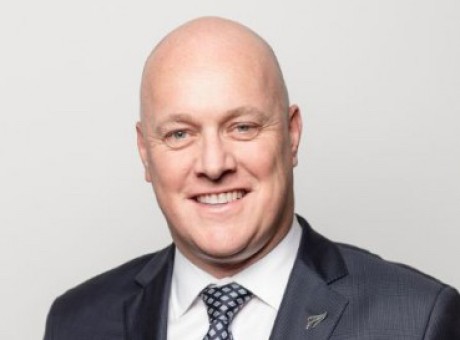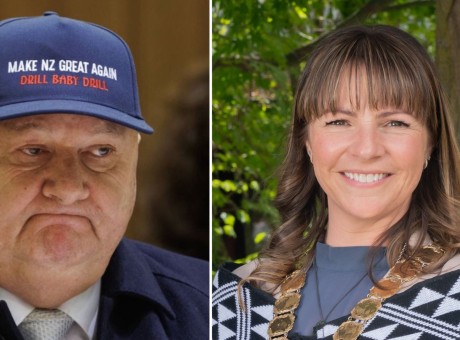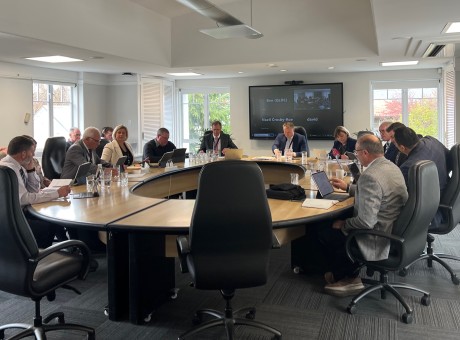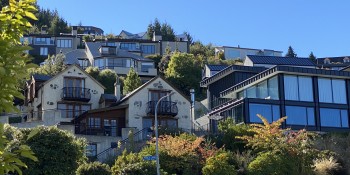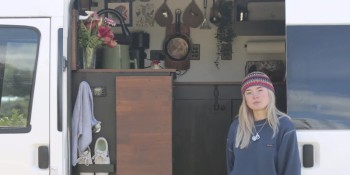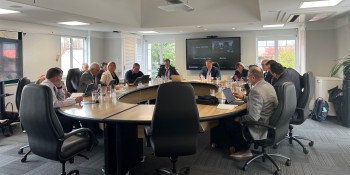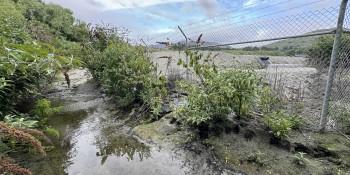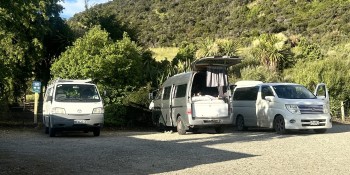Esther Whitehead - learning climate leadership skills direct from Al Gore
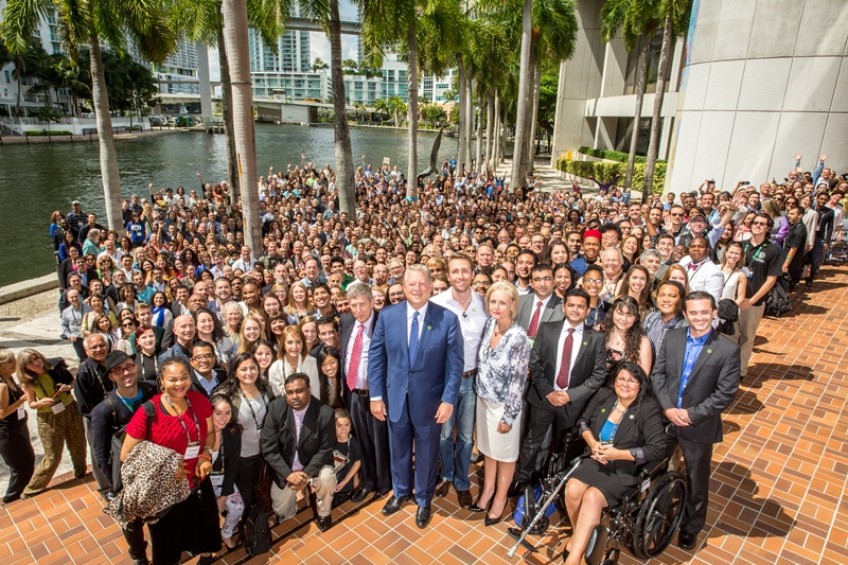
Esther Whitehead has spearheaded many local climate change and sustainability projects through Sustainable Queenstown, but now she's taken her work to a new level by being accepted onto Al Gore's environmental leadership course - The Climate Reality Project - in Brisbane this week. She's one of almost 800 scientists, communicators and climate experts attending the course and she's shared with Crux her impressions of Day One. This is her personal account and her personal views - not those of the course organisers.
Arriving at the Climate Reality leadership Corps on Wednesday morning was exciting. Getting the train there, I felt like much of my work has been leading to this moment, when I will get to meet ex-Vice President of the US, Mr Al Gore. Watching Al Gore’s An Inconvenient Truth back in 2006 was a deep reminder to me that this was THE subject closest to my heart, but at the time I worked in the Education Sector and couldn’t find the pathway to this work in Climate strategy or meet the people who could offer a pathway. His work resonated deeply with me. It means the world (literally) to be here in attendance, as the last 3 years I have dedicated my ‘spare’ time to driving positive and measurable impact in the Wakatipu Region, alongside others who share my passion.

Esther Whitehead on Day One of the Climate Reality Project leadership course in Brisbane.
This Brisbane Leadership training course is the 41st Climate Reality Leadership Corps training globally. It comprises 790 attendees from over 50 countries in the Asia Pacific Region, to join the conversation. There are others from NZ, some of whom I know but haven’t yet bumped into!
Al Gore came on stage with his usual relaxed confidence and amicable nature to remind us that mother nature has joined this debate (seen in recent impacts including extreme weather, human health, impacts on water and ecosystems, and on agriculture, infrastructure and economy – it’s here!) and that we don’t have the luxury of being disengaged from political decisions, and that we are a cohort of delegates joining 19,000 leaders who have already gone through the training since 2006. He ran his first leadership course with only 50 attendees back in 2006. We are here for Queensland’s fist ever Climate Week, the brain child of Hon Leeanne Enoch MP, the first indigenous woman elected to serve as Environment Minister in Australia. She won a seat in the 2015 election and has led the charge despite the wider political landscape.
Being here is about developing skills to communicate the issue positively, and to improve skills on presenting Climate Action, to talk about transitioning to a clean (low- carbon) economy and the role that I will play as a member of the cohort of leaders throughout the world, being part of a supportive global network. As always, it’s up to us attendees to take away this experience and continue to make a difference in the local sphere of influence that we hold.
We met and were seated next to others from our region (10 from NZ) to get connected and acquainted with our network closest to us. We have a mentor on every table who guides and facilitates the three days. We were asked why we are here and where do we want to go from here. Telling our stories, we learned that we are here to take leadership back to our sector, business and community, that collective action amplifies impact. Making hard conversations easier.

A recent Climate Reality Project leadership course in Pittsburgh.
Much of being here is about being inspired and empowered to take leadership in accelerating the solutions to the climate crisis. That is, we were accepted because we’re already demonstrating leadership, and now we will be given more skills to improve that leadership.
Al Gore asks us, do we have to change, can we change, and will we change? He leads his original presentation with optimism and realism, and shows us how we can summon the will to sit with the uncomfortable truth, he reminds us that we have to be resilient – I am not sure we each know how, but there’s the prompt.
He uses the image of the earth that NASA took in 1964, this is how he starts each of his presentations. It’s a beautiful image that he says reminds us that we share this place, that it is one eco-system. We are led through many of the climate change solutions and adaptations that are already happening in Australasia from renewable energy to transportation and conservation right through to environmental justice and leadership.
Throughout the three days we are asked to log our “Acts of leadership” through an online leadership tracker which we will continue to refer back to.
You can find out more about The Climate Reality Project and its influence globally as well as the tireless work that Al Gore has committed his life’s work to when the movie, The Sequel to the Inconvenient Truth is shown on Netflix (released June 15th).
The official trailer for "An Inconvenient Sequel: Truth To Power"
The stark evidence that Al Gore walks us through leaves us in no doubt! He connects the dots globally across soil nutrient loss, lakes drying up, deforestation, medical health emergency due to disease, food loss, heat stress, air pollution etc., extreme weather episodes happening each and every week. He then shifts to provide more hope and showcases the statistics on trends of coal plants that were cancelled and that the rhetoric we hear in USA fro Trump is not matching the facts. 112 large financial institutions have announced they will not finance coal-fired power plants.
30 countries have committed to ‘powering beyond coal’. The reality is that there is a mega-trend of transition to clean energy but you’d simply never know with Trump’s talk. The mega-trend is comparable to the mobile phone trend, whereby poorer nations are leapfrogging developed nations, because they’re not already dependent on ‘landlines’. India has divested from coal and they’re on track to over-achieve their commitment to the Paris Agreement.

Al Gore has become the de facto world climate change leader after the success over 10 years ago of "An Inconvenient Truth."
Living in NZ at this time, gives me the confidence that we have demonstrable leadership at central government level, that climate change is a priority; that progressive conversations can take place and that bold decisions are happening such as the ban on all new offshore oil and gas exploration permits. It’s not always popular, but transitioning to a lower carbon dependence is not just on the radar it’s on the agenda in NZ.
It’s recognised by our leaders not because it’s the right thing to do but that it’s the smart thing to do. The World Economic Forum has repeatedly said for the last three years that climate change is the Number One risk to our global economy. Too much wealth is caught up in Carbon Assets but their value is not real because there is so much risk attached to investing in them. It’s a fact that there are way more tax payer subsidies funding fossil fuels than alternative energies. In Australia alone, $29 Billion per year in subsidies to fossil fuels.
The first day reminds me that we each have a circle of influence, and we can’t do everything, but we can be courageous and take a step to being a climate leader. It’s what drives me, and several others in our district. What will sustain my motivation and empower me further is the support of others, and the momentum we can build together.
It’s an honour to become a recognised Climate Reality Leader and I ask others to think of their individual acts of leadership and how they can showcase them to others. Al Gore passionately persuades us that the will to change, is itself, a renewable energy and grassroots movements are more important now than ever. A good leader doesn’t create followers but more leaders.
He’s certainly achieved his goal!
Main Image: Al Gore at a recent Climate Reality Project leadership course in Miami, Florida. Courtesy Dream in Green.





